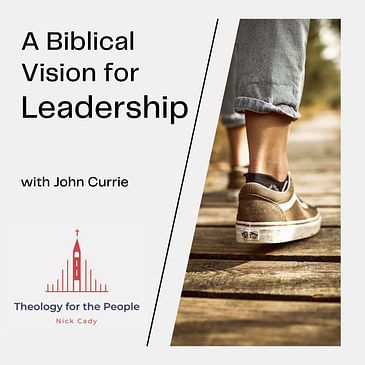Leadership is a very popular topic in modern business discussions, but what does the Bible have to say about leadership? And is there a difference between the vision for leadership given in the Bible versus that which comes from the world?
John Currie is professor of pastoral theology at Westminster Theological Seminary in Philadelphia, Pennsylvania. He has also served as a pastor in different churches and denominations, and in these roles, he has seen that sometimes pastors thrive in preaching, but struggle with leadership, or vice versa.
In his recent book, The Pastor as Leader: Principles and Practices for Connecting Preaching and Leadership, John gives a biblical vision for a uniquely Christian approach to leadership.
--- Support this podcast: https://podcasters.spotify.com/pod/show/theologyforthepeople/support





